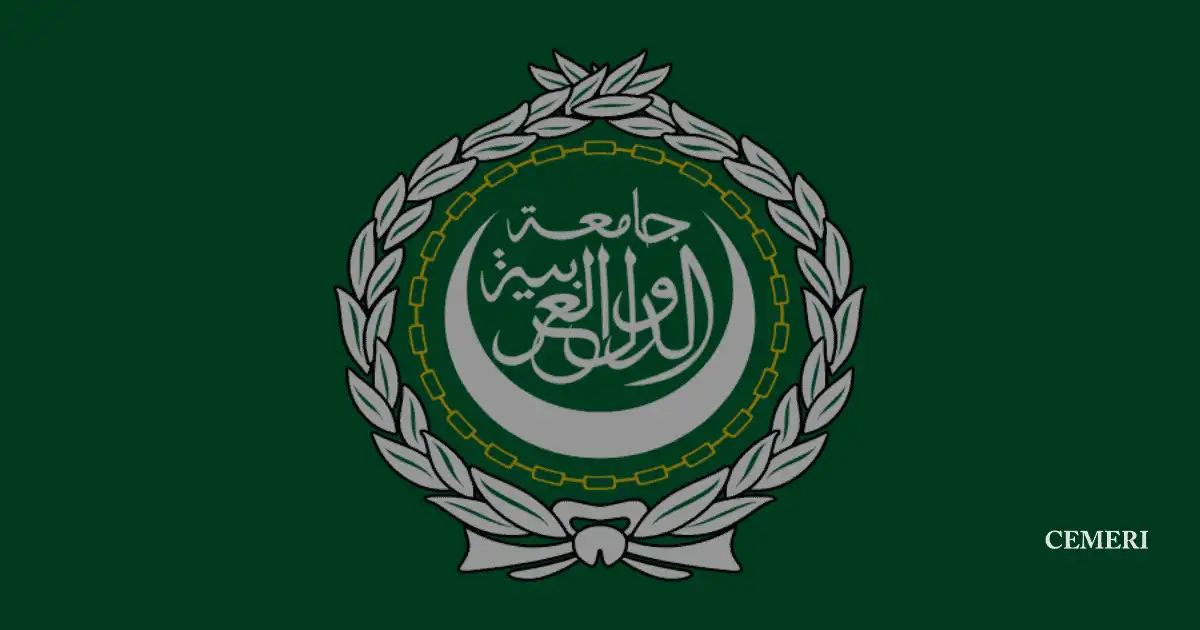Encyclopedia
Marco Olivera
What is the Arab League?
- The League of Arab States or Arab League is an intergovernmental organization of 22 countries in Africa and Western Asia.

The League of Arab States or Arab League is an intergovernmental organization of 22 countries in Africa and Western Asia (this region misnamed the Middle East, Near East or Middle East), whose peoples are mainly Arabic-speaking, and whose purpose is to strengthen the ties between its member states, coordinate their policies and promote their common interests.
Members of the League of Arab States
Founded in 1975, the founding member states were Egypt, Syria, Lebanon, Iraq, Transjordan (now Jordan), Saudi Arabia (Saudi Arabia), and Yemen. Other members are:
- 1953: Libya
- 1956: Sudan
- 1958: Tunisia and Morocco
- 1961: Kuwait
- 1962: Algeria
- 1971: Bahrain, Oman, Qatar and the United Arab Emirates.
- 1973: Mauritania
- 1974: Somalia
- 1976: Palestine (Represented by the Palestine Liberation Organization)
- 1977: Djibouti
- 1993: Comoros
In January 2003, Eritrea joined the Arab League as an observer.
Foreign ministers of League members take part in an annual session in the Egyptian capital Cairo on March 4, 2020.
Photo: AFP/Mohamed el-Shahed
General data of its members
The Arab League countries have widely varying levels of population, wealth, gross domestic product (GDP), and literacy. They are all predominantly Muslim Arabic-speaking countries, but Egypt and Saudi Arabia are considered the dominant players in the League. Through joint defense, economic cooperation and free trade agreements, among others, the league helps its member countries coordinate government and cultural programs to facilitate cooperation and limit conflict. In 1945, when the League was formed, the prominent issues were the liberation of the Arab countries still under colonial rule and the prevention of the breakup of Palestine through the creation of the Jewish state of Israel (although, today, the Arab League recognizes Palestine as a separate nation).
Saudi Arabia and Egypt are the most influential members of the Arab League.
Pictured are Egyptian President Abdel-Fattah el-Sissi, right, meets Saudi Crown Prince Mohammed bin Salman in Cairo, Egypt, March 4, 2018.
Photo: Mohammed Samaha
Brief history of the Arab League
When the League was founded, among its goals were strengthening and coordinating its members' political, cultural, economic, and social programs and mediating disputes between them or between them and states outside the organization. Also, the members are committed to the coordination of military defense measures after signing an agreement on joint defense in 1950 and economic cooperation in 1950.
In its early years, the Arab League concentrated mainly on economic, cultural and social programs, as evidenced by joint activities on these issues: in 1959 it held the First Arab Oil Congress and in 1964 it established the Arab League Organization for Education, Science and Culture (ALECSO). Also in 1964, despite Jordan's rejection, the league granted the Palestine Liberation Organization (PLO) observer status as a representative of all Palestinians, although in 1976 it was accepted as a full member.
Conflicts between members of the Arab League
Political activity increased under the leadership of Mahmoud Riad, the third Secretary General (1972-1979). However, the Arab League's effectiveness and influence have been hampered by divisions among member states. During the Cold War, some members supported the Soviet Union while others sided with Western nations. There has also been rivalry for the leadership of the League, especially between Egypt and Iraq.
Hostilities between monarchies such as Saudi Arabia, Jordan and Morocco have been disturbing, as has the conduct of states undergoing political change such as Egypt under Gamal Abdel Nasser and Libya under Muammar Gaddafi.
The League's position on Israel has been inconsistent, following the March 26, 1979 Egypt-Israel Peace Treaty, the other members of the Arab League voted to suspend Egypt's membership and move the league's headquarters from El Cairo to Tunis. Egypt was reinstated as a member in 1989, and the league headquarters returned to Cairo a year later.
In 2019[, the League denounced Israel's plans ](https://www.aa.com.tr/es/mundo/liga-%C3%A1rabe-critica-el-plan-de-trump-para-oriente- middle/1718254)of annexing the Jordan Valley. In February 2020, the League condemned the West Asia peace plan put forward by the administration of US President Donald Trump. But several members appeared to approve, and then, in September, did not condemn the United Arab Emirates' decision to normalize ties with the Jewish state.
The US attack on Saddam Hussein's Iraq also created major divisions among members of the Arab League. After the Iraqi invasion of Kuwait in 1990 and the subsequent participation, at the request of Saudi Arabia, of Western countries —mainly the United States— to liberate Kuwait from the Iraqi presence caused a deep rupture in the organization, since Saudi Arabia, Bahrain, Egypt, the United Arab Emirates, Kuwait, Lebanon, Morocco, Syria, Somalia, Qatar and Djibouti supported the presence of foreign troops in Saudi Arabia, and all but the last three had some degree (albeit slight) military involvement in the war.
The Arab League acted decisively and unanimously during the "Arab Spring" uprisings in early 2011. It supported United Nations action against Muammar Gaddafi's forces in Libya. On August 27, 2011, the Arab League voted to restore Libya's membership by accrediting a representative of the National Transitional Council, which was partially recognized as the country's interim government in the wake of Gaddafi's ouster from the capital of Tripoli.
On November 12, 2011, the League passed a decree that would suspend Syria's membership if the government did not stop violence against civilian protesters by November 16 amid the civil war. Despite this, the government did not give in to the League's demands and has not been part of the organization ever since.
The Yarmouk refugee camp in Damascus, 2014.
Photo: United Nations Relief and Works Agency
Arab League Goals
Its founding charter establishes various objectives, among them are the following:
- Consolidate relations between Arab countries
- Safeguard the independence of member states
- Coordinate plans and policies among member states
- Improve cooperation in the economic, cultural, social, health and other fields.
- Examine the interests and issues of the Arab states in general
- Cooperate with international organizations to guarantee security and peace and regulate economic and social relations.
General operation of the League
The Council of the League is the supreme body and is composed of representatives of the member states, generally foreign ministers, their representatives or permanent delegates. Each member state has one vote.
The Council meets twice a year, in March and September. Two or more members can request a special session if they wish.
The general secretariat manages the day-to-day operations of the league and is headed by the general secretary. The general secretariat is the administrative body of the league, the executive body of the council and specialized ministerial councils.
Is the Arab League a Military Alliance?
The Arab League as an organization is not a military alliance per se, although since its founding in 1945 its members have agreed to cooperate on military matters and coordinate military defense.
At the 2007 summit, the Leaders decided to revive their joint defense and establish a peacekeeping force to deploy in southern Lebanon, Darfur, Iraq and other hot spots.
At a 2015 summit in Egypt, member states agreed in principle to form a joint volunteer military force. However, this military force is not yet operational and is hindered by the differences between its members.
Why is Türkiye not in the Arab League?
While Turkey has not sought entry into the organization, Turkey has expressed interest in having observer status in the League, but has been denied for various reasons, most notably opposition from Iraq (with whose Kurdish citizens Turkey has frequently fought) and Syria (the latter still claims the Turkish province of Hatay). The League has also condemned Turkey's military interventions in Libya and other countries.
Sources
SIN FUENTES

